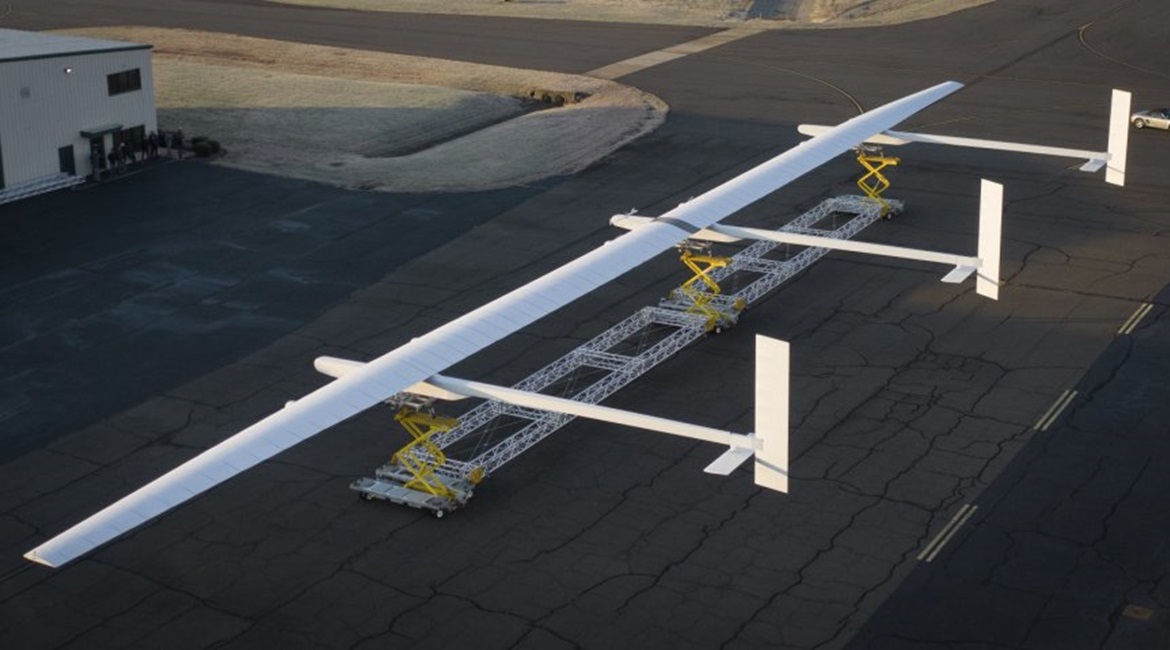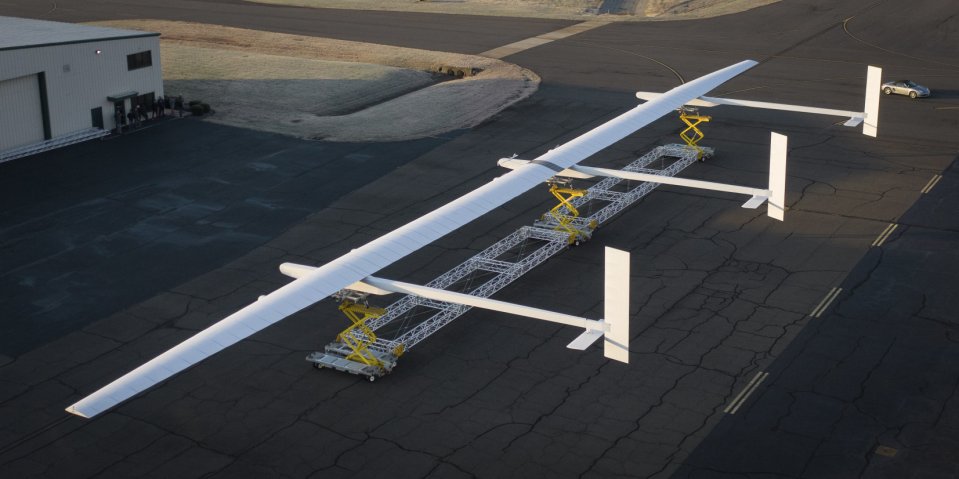
Aurora Flight Sciences promoted its Odysseus high-altitude ultra-long-endurance solar-powered autonomous unmanned aerial vehicle (UAV) at the 2019 Army Aviation Mission Solutions Summit (AAAA 2019).
Aurora declined an interview request on 15 April but said the aircraft can fulfill global research; communications; connectivity; and intelligence, surveillance, and reconnaissance (ISR) missions. Odysseus, the company said, enables ultra-long coverage measured in months through advanced design and battery management. It travels to its destination and maintains its position autonomously in any stratospheric condition.

A photo of the Aurora Flight Sciences Odysseus high-altitude pseudo-satellite (HAPS) solar-powered autonomous unmanned aerial vehicle (UAV), taken earlier in 2019. A model was on display at the AAAA 2019 summit. (Aurora Flight Sciences)
Aurora believes Odysseus provides the largest payload capacity available in persistent, solar aviation. The aircraft has a 25 kg payload capacity or more, depending on the mission. Odysseus has 250 watts of continuous payload power with a wingspan of 74 m.
Odysseus, officially unveiled in November 2018, is projected to operate far above weather and other aircraft with the ability to cover a broad geographic area while keeping its station. Aurora spokesperson Luisa Guerra said on 16 April that Odysseus is comparable to a Group 5 UAV system based on altitude and size. However, she said solar aircraft are unique and do not fit the established Pentagon UAV groups.
Powered by advanced solar cells and built with light-weight materials, Odysseus has zero emissions and can be reprogrammed as mission requirements and technology evolve. Aurora believes Odysseus can be deployed at a smaller cost than a satellite and can spend dramatically more time aloft than a conventional UAV.
Looking to read the full article?
Gain unlimited access to Janes news and more...




